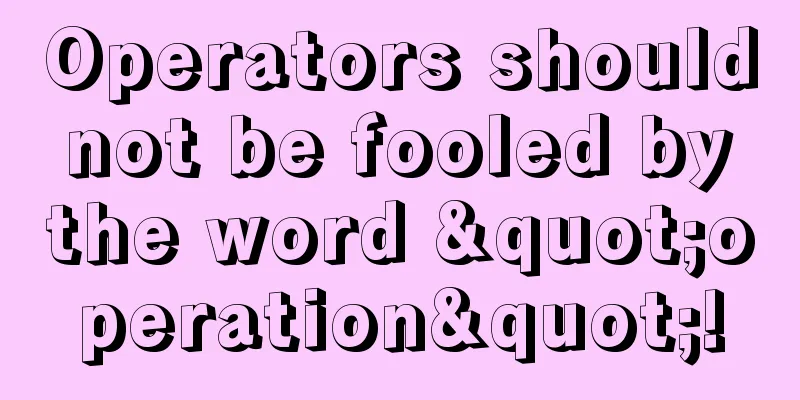A new way to record your online life——ilog

It is arbitrary to crudely define real life as "rich" and screen life as "boring". A nine-grid photo of the sunset at the seaside, the location of a treasure house, a few seconds of Mayday concert video... When you see your friends’ rich and wonderful real lives on WeChat Moments, and then look at your own average ten hours a day of mobile screen time, do you feel a pang of sadness? (plog blogger) Spread your wings and fly over the fields of the Sky Kingdom, cheer on netizens' funny comments, and encounter a catchy melody in the random playlist... Are there moments that you can't help but press the screenshot or screen recording button, full of joy, but with no one to share? In the end, it seems that only the backup data in the mobile phone album witnesses the time you devoted yourself to. Faced with the colorful real world, we are always willing to record and share it in the form of vlog, plog, etc.; but faced with the richer screen world, we always denounce it as boring, wasting time or information overload. We seem to be ashamed to admit that screen life is playing an increasingly important role in our lives. We also refuse to accept that screen life can be as wonderful as real life and as worth recording and preserving. Recently, a blogger noticed that people have completely different and contradictory attitudes towards real life and screen life, and boldly proposed a new concept: ilog. (Screenshot of the blogger’s original video) According to blogger @于可音, people can expand ilog into information-log, internet-log, iphone-log, inside-log and other forms. Similar to the video log vlog and photo log plog that record real life, ilog is a screen log that records people's online life. Some netizens also believe that a more accurate expression of ilog should be slog, that is, screenshot-log. At present, the ilogs posted by netizens are mainly screenshots + text experience, which is in line with the extended connotation of slog. (ilog shared by netizens) No matter which expression is chosen, the core idea of ilog is very clear: recording and sharing people's screen lives is just as important as recording and sharing their real lives. 1. Life log: screen charging or cash charging?Nowadays, people are no longer unfamiliar with vlog and plog. By recording a trip with video and supplementing it with necessary narration or on-camera performance, vlog can create a particularly fresh and romantic travel memory by condensing the wonderful moments. (vlog work) By using photos to record an evening and adding necessary text descriptions, plog can recreate the feelings and scenes in imagination through clever composition and vivid text, revealing the creator's rich inner activities. These fragments captured from real life are an expression of the recorder's attitude towards life and personal interests. They shape people's personality on social platforms and help people mark a few milestones in their flowing lives. (plog work @一个星桃君) Following this logic, ilog attempts to freeze equally meaningful moments in people's screen lives. In recent years, reading and sharing APP annual reports has become a kind of New Year's Eve ritual. Through a series of numbers related to themselves, people can look back on those special moments in their screen life: What made you loop a song 45 times on a certain day? What made you still active on a social platform at 4 a.m.? (NetEase Cloud Music Annual Report) While people are re-understanding and reinterpreting themselves in annual reports, they shyly share them on WeChat Moments, waiting hopefully for people who can resonate with them, or waiting without hope for someone who is willing to understand them through them. Each annual report can be seen as a highly condensed ilog. Although it is not actively produced by users, it has become popular because it meets people's needs to record and share their screen life. In daily screen life, this demand often overflows in other forms, such as the countless screenshots in the mobile phone album that we are reluctant to delete, and the "Internet patrol dogs" who want to @ their friends to take a look no matter what interesting content they see. ("Internet Patrol Dog") As blogger Yu Keyin said, meeting an interesting old man on the street should not be more surprising than meeting a humorous netizen on the Internet; a small shop discovered deep in the alley should not be more unique than a chic online store. The functions and values carried by traditional vlog and plog can basically be inherited and developed in ilog, but the difference that the recorded object is screen life rather than real life is enough to make people doubt the significance of ilog. (Screenshot of the blogger’s original video) People will say “no one cares about your NetEase Cloud annual report”, will advocate “slimming down” management of mobile phone albums, and will hesitate to close the sharing page within a few seconds of selecting “Share to…”. People are used to criticizing screen life as virtual, the experience of screen life as cheap, and being addicted to it as a waste of life. Therefore, the idea of recording and sharing screen logs is always faced with accusations of being boring and meaningless. (Comments from netizens) So, to what extent is real life real compared to the virtual life on the screen? 2. Pursuit of truth: Who is better?As technology continues to develop, the distinction between virtual and reality is becoming increasingly blurred, and physical experiences such as hearing and feeling will no longer be considered a privilege in real life. People urgently need some kind of explanation to confirm their completely different life experiences in the two spaces. (Original video comment) Buddhist philosophy places great emphasis on the so-called "reality", and regards it as having no beginning, no end, and no birth or death. To some extent, people use this to distinguish between dreams and reality. Dreams are born and die in one night, while the real world remains unchanged, and human history has continued to move forward from ancient times to the present. Similarly, no matter how amazing people’s lives on the screen are, they are always short-lived compared to the objective world. People always have to return to real life to meet their physical needs, and those illusory and dreamlike times are therefore not real. (Original video comment) However, from another perspective, human life is just a wave in the vast ocean of human civilization. Instead, it is in the virtual screen life that we gain a certain power that transcends the laws of nature. Reading a comment posted a day ago does not seem more real than reading a literary novel from the last century; viewing a street view thousands of miles away on Google Maps does not seem more fresh than climbing walls and running on rooftops in a game map. By eliminating the barriers of time and space, screen life shows characteristics that are closer to eternity. The so-called vlog and plog are nothing more than freezing real life in the screen world, hoping to make those brief moments gain eternal vitality. In this process, vlog and plog are also drifting away from real life. People deliberately perform a certain kind of romance in front of the camera, using filters and beauty to modify monotony and defects. The process of recording reality has become the process of constructing landscapes. We have not yet sunk into the virtual world, but we have already lost ourselves in reality. At this time, people are not afraid of being exposed to high-definition cameras, and are not bothered by screening and retouching imperfect photos. In front of the screen that is denounced as virtual, people instead unload many burdens and record and express their true selves in ilog. (ilog fragments shared by netizens) ilog has caused people to reflect on real life and screen life, and has made netizens feel a kind of fear of being detached from both real life and screen life: it turns out that the wave of technological progress and the torrent of social change are passing through us, and the moment we stop is also the moment to briefly withdraw from the warm water. Some netizens have also created the log recording form of fakelog, in which they add their own text to pictures downloaded from the Internet and pretend to be immersed in real experiences such as enjoying food, traveling, and reading. In this way, they express their skepticism about vlog and plog and resist their invasion and destruction of their true self. (Original video comment) The emergence of ilog confirms such a situation: on the one hand, we are eager to record life and our true self in various forms; on the other hand, we feel anxiety and panic in the area where virtual and reality increasingly overlap, and the definition of life and self becomes increasingly unclear. 3. Return to Meaning: Not Restricted to FormExtracting the truth from screen life and real life has become a difficult task. But don't be discouraged, at this moment we can determine what is real, and we have a heart that longs for the truth. In the final analysis, vlog, plog, ilog and even fakelog are just a form of recording moments, and the recorded content is the real part of our lives. They are short-lived, but unique enough, and will eventually condense into eternity in our memories. What is more important than the form in which life is recorded is the attitude with which one experiences life. (Comments from netizens) At this point, it is arbitrary to roughly define real life as "rich" and screen life as "boring". The book "The Philosophy of Boredom" points out that boredom comes from the lack of meaning. But meaning is never created out of thin air in the objective world, but is established in people's hearts. Real life does not make more promises about truth or meaning, and what we need is not this promise, but the experience of reality and the awareness of meaning. (ilog shared by netizens) From this perspective, ilog does not point to a strategy of escaping into the depths of the screen, but rather a return to meaning. It reminds us that even in front of the screen, the self still exists, and we can be moved, surprised, and contemplative. It aims to awaken our thinking and experience of screen life, rather than numbly becoming part of Internet data. Therefore, there is no need to panic about the rich experiences in screen life, nor to feel ashamed when you are eager to share screen life. Passionate screenshots, bold writing, each ilog record is not the boredom of wasting time, but the evidence that we really exist. (Picture from the Internet) Author: Fried Cake Source: WeChat public account: "Zhizhu.com (ID: covricuc)" |
<<: How to evaluate the effect of Xiaohongshu after publishing
>>: I learned to write copy on Douban
Recommend
Douyin, Kuaishou and Weibo are full, iQiyi, Youku, Tencent and Mango TV are chasing them. Who will run wild in the short drama industry in 2023?
Today, short dramas are popular. Not only are WeCh...
What is the process and cost of opening a store on Amazon? How much money is needed to open a store on Amazon?
Now more and more people want to enter cross-borde...
New adjustment: WeChat stores continue to highlight "sending gifts"
As the Spring Festival approaches, WeChat Store ha...
Where is Amazon Seller Central? How do I access it?
Amazon Seller Central is a management platform pro...
If you want to make big money in your private domain, you must be wary of these "pitfalls" in membership operations!
For enterprises, the key to doing a good job in me...
Can I use Apple ID to pay for eBay? What should I pay attention to?
More and more people like to shop online. When cho...
Heytea is competing for the Paris market, Yili is “buying shares in advance”…are these “fancy ways” of Olympic marketing?
The 2024 Paris Olympics is about to kick off. Its ...
How effective are Amazon video ads? Is it worth running?
Amazon promotion is actually divided into two type...
"No.1 Chinese fast food", how does Lao Xiang Ji, which has thousands of stores, achieve performance growth through private domains?
How can Chinese fast food achieve business growth ...
Xiaohongshu, Bilibili, Kuaishou, Internet platforms set off a new wave of "poetry revival"
Poetry, which was marginalized after the 1990s, is...
Is Amazon a wholesale marketplace? What are the pros and cons?
Among cross-border e-commerce platforms, Amazon is...
Escape from the hotel "assassin": young people robbed the bath center for 50 yuan to spend the night, and went to the surrounding cities of the scenic spot to book a room
This year, the Mid-Autumn Festival and National Da...
What are the risks of registering an Amazon store for others? Is it legal?
Although operating an Amazon store has great marke...
With over 10 million viewers, can the sexy goddess of Hong Kong bring a breakthrough to the video account?
In the wave of e-commerce live streaming, Video Ac...
Ask and I'll give you some money
Recently, the "Wenyiwen Creation Profit Plan&...









